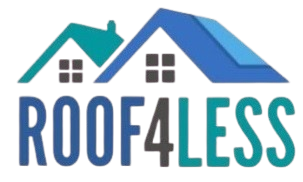Preventing costly roof replacement starts with regular roofing inspections. Your roof is one of the most critical elements of your home’s structure, and neglecting it can lead to major damage over time. Regular inspections ensure your roof stays in optimal condition, protecting your home and saving you from expensive repairs down the line.
Why Roofing Inspections Are Vital for Roof Health
A thorough roofing inspection involves more than just a surface check. Professional roofers examine your roof for signs of damage, including cracks, leaks, or weakened materials. Regular checks allow homeowners to identify minor issues before they escalate into larger problems, like water damage or structural deterioration.
How Regular Inspections Prevent Roof Replacements
Regular roof health inspections are essential for catching small issues early. Simple problems, such as loose shingles or minor leaks, can lead to significant damage if not addressed. By fixing these issues promptly, you extend the life of your roof and reduce the likelihood of needing a full roof replacement.
- Early Detection: Inspections allow for early detection of potential problems, giving homeowners a chance to fix them before they worsen.
- Cost Savings: Catching minor issues early can save you from costly roof repairs or replacements.
- Increased Roof Lifespan: Regular maintenance helps extend the lifespan of your roof, postponing the need for a complete replacement.
What Happens During a Roofing Inspection?
A professional roofing inspection includes checking for common issues that may compromise your roof’s integrity. Here are some areas commonly inspected:
- Shingles: Inspecting for cracked, curled, or missing shingles is crucial for preventing leaks and structural damage.
- Flashing: This material helps protect vulnerable areas, like chimneys and vents. Ensuring it is intact is key to preventing water damage.
- Gutters: Proper gutter function prevents water from pooling on your roof, which can lead to rot and damage.
How Often Should You Schedule a Roof Inspection?
For optimal roof maintenance, homeowners should schedule a roof inspection at least once a year, ideally in the spring or fall. Inspections are especially important after severe weather events, such as storms or heavy snowfall, which can cause unseen damage.
Roof Inspection vs. Roof Replacement
While a full roof replacement might seem inevitable after years of wear and tear, regular roofing inspections can significantly postpone that necessity. Small repairs and preventative maintenance, like replacing damaged shingles or fixing leaks, can extend your roof’s lifespan and keep your home safe.
DIY vs. Professional Roofing Inspections
While it’s possible to spot visible issues on your roof, a professional roofing inspection goes much deeper. Roofers have the experience and equipment to detect problems that may not be visible to the untrained eye. Investing in a professional inspection could save you from an unexpected and costly roof replacement in the future.
Take Action: Schedule Your Roofing Inspection
Don’t wait until a small problem becomes a major repair. Scheduling regular roofing inspections is the best way to protect your roof and prevent costly replacements. Whether you’re dealing with minor repairs or need peace of mind after a storm, a professional inspection will keep your home secure and extend the life of your roof.
READ MORE:
Regular Roof Inspections: A Key to Avoiding Emergency Repairs
Preventing Major Issues with Regular Roof Health Inspections

